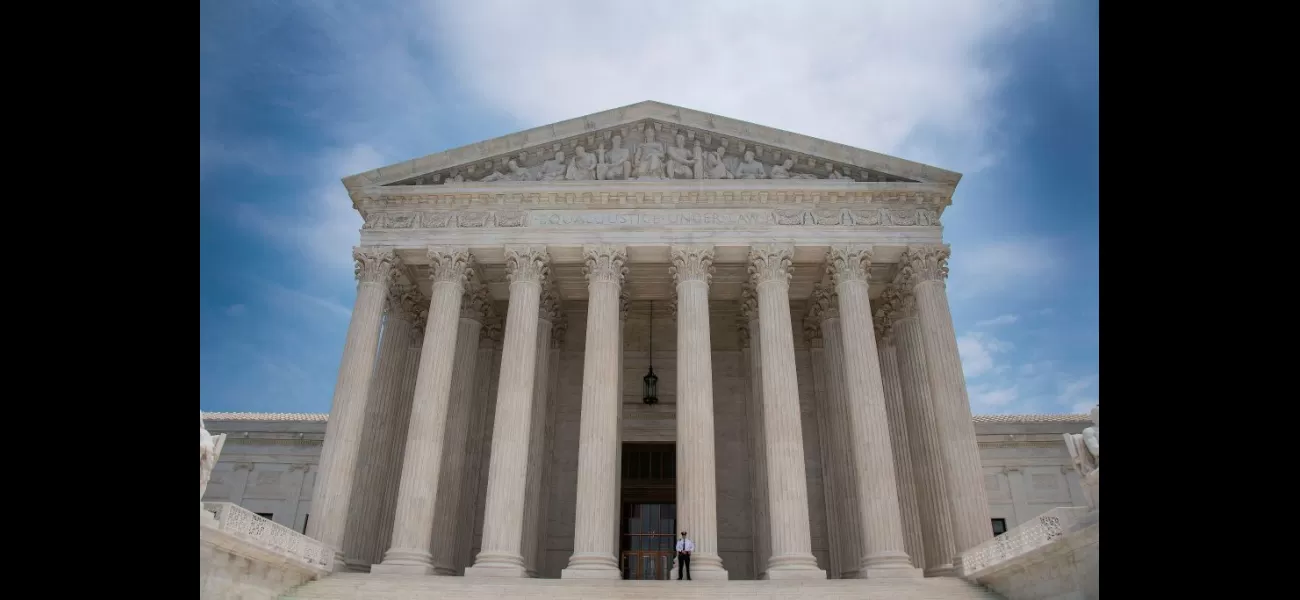Supreme Court considers limits on cities' ability to address homeless encampments.
Sotomayor questions where refugees are supposed to sleep and suggests it would be harmful to not allow them to rest.
April 23rd 2024.

The Supreme Court recently engaged in a heated debate over the extent to which U.S. cities can enforce measures against homeless encampments. The case in question was that of Grants Pass, Oregon, a popular tourist destination where the town had passed a law prohibiting sleeping in public with a blanket. This meant that members of the homeless community were facing hefty fines and even jail time for violating the city's strict anti-camping laws. However, a federal appeals court intervened, arguing that such ordinances were in violation of the Constitution's ban on cruel and unusual punishment.
Similar rulings had been made in 2018 regarding an anti-camping law in Boise, Idaho. As a result, city officials are now blaming the court's decision for causing a rise in unsanitary and unsafe homeless encampments. They are urging the Supreme Court to reconsider and reverse the ruling, claiming that it has made it difficult for them to address public health hazards in these encampments. During the court hearing, Justice Sonia Sotomayor expressed concerns about the lack of empathy shown towards the homeless community by criminalizing their homelessness. However, she also acknowledged the importance of allowing cities to regulate public health risks in these encampments.
Deputy Solicitor General Edwin Kneedler argued in favor of giving cities the flexibility to implement "reasonable" rules regarding where, when, and how someone can sleep in a public place. On the other hand, Kelsi Corkran, a lawyer representing the homeless residents of Grants Pass, argued that the "blanket" law specifically targeted the homeless community, while permanent residents were able to evade consequences by lying on blankets in public. She stated that these laws made it nearly impossible for homeless individuals to live in Grants Pass without facing constant fines and jail time. Furthermore, she argued that these ordinances merely shifted the problem to neighboring jurisdictions instead of actually addressing it.
The attorney for the City of Grants Pass, Theane Evangelis, called the ruling a "failed experiment" and urged the justices to put an end to it. She claimed that the law was only fueling the spread of encampments while harming the very people it was supposed to protect. Evangelis argued that without the court's intervention, cities would be forced to surrender their public spaces to the homeless population.
Some of the justices were of the opinion that it should be left up to local governments to decide how to handle the issue of homelessness. They argued that federal courts should not get involved in such matters. However, they also showed compassion and acknowledged that homelessness was a serious policy problem. Chief Justice John Roberts questioned whether the Supreme Court was the best entity to make decisions regarding such complex policy issues.
Justice Elena Kagan likened sleeping to a biological necessity, stating that it was similar to breathing. She argued that just like it would be unacceptable to criminalize breathing in public, it was also unfair to criminalize sleeping for homeless individuals who had nowhere else to go. She also highlighted the alarming statistic that over 650,000 people in the United States were experiencing homelessness, with a 12% increase from 2022 to 2023.
During the hearing, Chief Justice Roberts and other justices raised concerns about the distinction between status and conduct in this case. They struggled with the idea of punishing someone for their status of being homeless, rather than their conduct. This decision holds significant weight, as the court had previously ruled in 1963 that a law in California that criminalized drug addiction instead of possession was a violation of the Eighth Amendment's ban on cruel and unusual punishment.
A decision on the case is expected by June 2024, and it will have significant implications for how cities can address the issue of homelessness while also balancing public health concerns.
Similar rulings had been made in 2018 regarding an anti-camping law in Boise, Idaho. As a result, city officials are now blaming the court's decision for causing a rise in unsanitary and unsafe homeless encampments. They are urging the Supreme Court to reconsider and reverse the ruling, claiming that it has made it difficult for them to address public health hazards in these encampments. During the court hearing, Justice Sonia Sotomayor expressed concerns about the lack of empathy shown towards the homeless community by criminalizing their homelessness. However, she also acknowledged the importance of allowing cities to regulate public health risks in these encampments.
Deputy Solicitor General Edwin Kneedler argued in favor of giving cities the flexibility to implement "reasonable" rules regarding where, when, and how someone can sleep in a public place. On the other hand, Kelsi Corkran, a lawyer representing the homeless residents of Grants Pass, argued that the "blanket" law specifically targeted the homeless community, while permanent residents were able to evade consequences by lying on blankets in public. She stated that these laws made it nearly impossible for homeless individuals to live in Grants Pass without facing constant fines and jail time. Furthermore, she argued that these ordinances merely shifted the problem to neighboring jurisdictions instead of actually addressing it.
The attorney for the City of Grants Pass, Theane Evangelis, called the ruling a "failed experiment" and urged the justices to put an end to it. She claimed that the law was only fueling the spread of encampments while harming the very people it was supposed to protect. Evangelis argued that without the court's intervention, cities would be forced to surrender their public spaces to the homeless population.
Some of the justices were of the opinion that it should be left up to local governments to decide how to handle the issue of homelessness. They argued that federal courts should not get involved in such matters. However, they also showed compassion and acknowledged that homelessness was a serious policy problem. Chief Justice John Roberts questioned whether the Supreme Court was the best entity to make decisions regarding such complex policy issues.
Justice Elena Kagan likened sleeping to a biological necessity, stating that it was similar to breathing. She argued that just like it would be unacceptable to criminalize breathing in public, it was also unfair to criminalize sleeping for homeless individuals who had nowhere else to go. She also highlighted the alarming statistic that over 650,000 people in the United States were experiencing homelessness, with a 12% increase from 2022 to 2023.
During the hearing, Chief Justice Roberts and other justices raised concerns about the distinction between status and conduct in this case. They struggled with the idea of punishing someone for their status of being homeless, rather than their conduct. This decision holds significant weight, as the court had previously ruled in 1963 that a law in California that criminalized drug addiction instead of possession was a violation of the Eighth Amendment's ban on cruel and unusual punishment.
A decision on the case is expected by June 2024, and it will have significant implications for how cities can address the issue of homelessness while also balancing public health concerns.
[This article has been trending online recently and has been generated with AI. Your feed is customized.]
[Generative AI is experimental.]
0
0
Submit Comment





